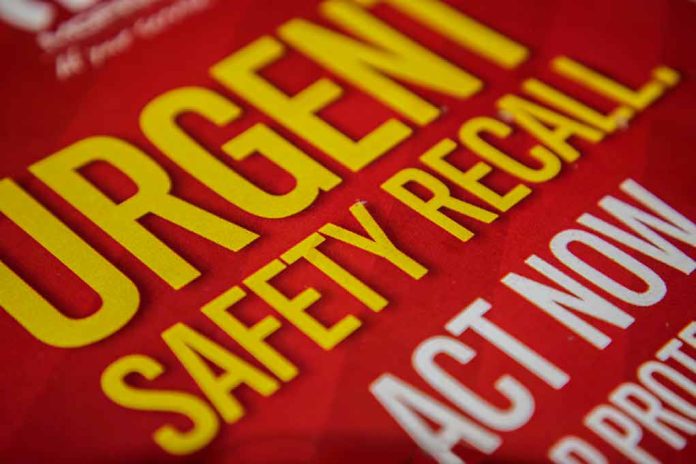
A staggering 10 million pounds of meat and poultry products are being recalled nationwide due to potential listeria contamination, raising concerns about food safety and government oversight.
At a Glance
- BrucePac recalls nearly 10 million pounds of ready-to-eat meat and poultry products
- Contamination discovered during routine testing by U.S. Agriculture Department officials
- Products were distributed nationwide to restaurants, food service vendors, and other locations
- No illnesses reported yet, but listeria can cause serious illness, especially in vulnerable populations
- Recall follows a recent listeria outbreak linked to Boar’s Head deli meat, resulting in 59 hospitalizations and 10 deaths
Massive Recall Exposes Food Safety Concerns
In a shocking development that raises questions about the efficacy of food safety regulations, BrucePac, a company based in Woodburn, Oregon, has issued a recall for nearly 10 million pounds of its ready-to-eat meat and poultry products. The U.S. Food Safety and Inspection Service (FSIS) detected the potential contamination during routine testing, highlighting the ongoing challenges in ensuring food safety across the nation.
This massive recall affects 75 different meat and chicken products, including popular items like grilled chicken breast strips. The contaminated products were manufactured between June 19 and October 8 at BrucePac’s facility in Durant, Oklahoma, and bear establishment numbers “51205” and “P-5120.” With a best-by date ranging from June 19, 2025, to October 8, 2025, these products have likely already made their way into countless restaurants, institutions, and households across the country.
#Alert BrucePac Recalls Ready-To-Eat Meat and Poultry Products Due to Possible Listeria Contamination https://t.co/eeyJTpmVf0
— USDA Food Safety & Inspection Service (@USDAFoodSafety) October 9, 2024
Listeria: A Silent Threat to Public Health
The recall stems from the potential presence of Listeria monocytogenes, a dangerous bacterium that poses a significant threat to public health. While no illnesses have been reported in connection with this specific recall, the risks associated with listeria contamination cannot be overstated. Listeria infection can cause serious illness, with symptoms including fever, muscle aches, and tiredness. It is particularly dangerous for vulnerable populations such as the elderly, pregnant women, and individuals with compromised immune systems.
The gravity of this situation becomes even more apparent when we consider that approximately 1,600 people in the U.S. are infected with listeria annually, resulting in about 260 fatalities. These numbers underscore the critical importance of stringent food safety measures and prompt action in the face of potential contamination.
Government Response and Public Safety Measures
The USDA’s Food Safety and Inspection Service has issued a nationwide alert, urging institutions, restaurants, and distributors to return or dispose of the contaminated products immediately. Consumers who may have purchased these products are advised to discard them if they are stored in refrigerators or freezers. This recall serves as a stark reminder of the ongoing challenges in maintaining food safety standards and the need for constant vigilance in our food supply chain.
While the government’s response to this potential outbreak is commendable, it raises questions about the effectiveness of current food safety regulations and inspection processes. How did such a large quantity of potentially contaminated products make it through the system undetected? This incident highlights the need for more rigorous testing and stricter oversight of food production facilities to prevent such large-scale recalls in the future.
A Wake-Up Call for Food Safety Reform
This massive recall comes on the heels of a significant listeria outbreak linked to Boar’s Head deli meat, which resulted in 59 hospitalizations and 10 deaths. These back-to-back incidents should serve as a wake-up call for both the food industry and regulatory bodies. It’s clear that our current food safety measures are not foolproof, and more needs to be done to protect consumers from potentially deadly contaminations.
As concerned citizens, we must demand greater transparency in food production processes and more frequent, thorough inspections of manufacturing facilities. The financial and human costs of these recalls and outbreaks are too high to ignore. It’s time for our government to prioritize public health over industry profits and implement stronger, more effective food safety regulations to prevent such large-scale threats to our well-being in the future.

















